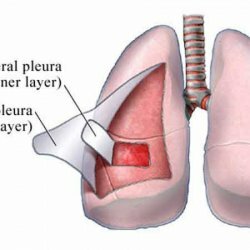Bronchitis in adults: symptoms, diagnosis, treatment
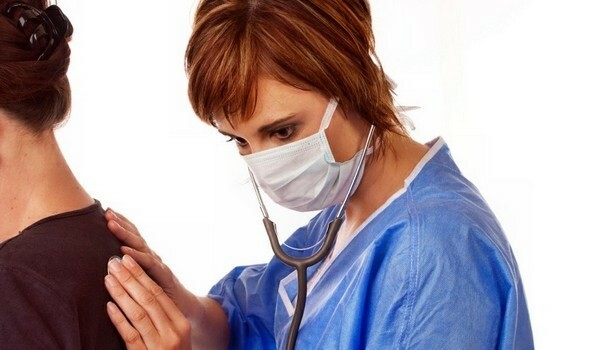 Bronchitis in medicine is called the inflammatory process, which takes place in the respiratory tract, namely in the bronchi.This disease is not considered dangerous for health and life, but in the absence of proper treatment, bronchitis can provoke complications.Physicians are allocated several types of bronchitis, each of them is characterized by distinctive symptoms.In addition, and treatment for each of the types of inflammatory process in question will be different.
Bronchitis in medicine is called the inflammatory process, which takes place in the respiratory tract, namely in the bronchi.This disease is not considered dangerous for health and life, but in the absence of proper treatment, bronchitis can provoke complications.Physicians are allocated several types of bronchitis, each of them is characterized by distinctive symptoms.In addition, and treatment for each of the types of inflammatory process in question will be different.
Classification of bronchitis
Doctors distinguish the following types of bronchitis for reasons of its occurrence:
- Viral bronchitis - inflammation develops on the background of diagnosed acute respiratory viral infections, Influenza, adenovirus diseases;
- toxic-chemical - appears against the background of either general poisoning of the body, or with the regular inhalation of poisonous substances( this can be, for example, under unfavorable working or living conditions);
- tuberculosis bronchitis - caused by mycobacterium tuberculosis, which is always present in the bronchi, even with early tuberculosis;
- infectious bronchitis - bronchitis is caused by the multiplication of pathogenic bacteria, in some cases the inflammatory disease under consideration develops against the background of atypical bacteria( chlamydia);
- allergic bronchitis - occurs only against the background of an allergic reaction to any external or internal stimulus.
There is another type of bronchitis - mycobacterial, but it is diagnosed very rarely and is an exception.This type of inflammation in the bronchi is caused by nontuberculous mycobacteria. Bronchitis in medicine is differentiated according to the type of flow( this is the most common classification of the disease):
- Acute bronchitis - inflammation of the lungs that occurs with acute respiratory viral infections or the flu( most often), is easy to treat and after 3-4Week of literate therapy the patient completely recovers;
- chronic bronchitis - differs duration of the course( not less than 6 months), a constant cough and is considered the most common form of the disease in adults.
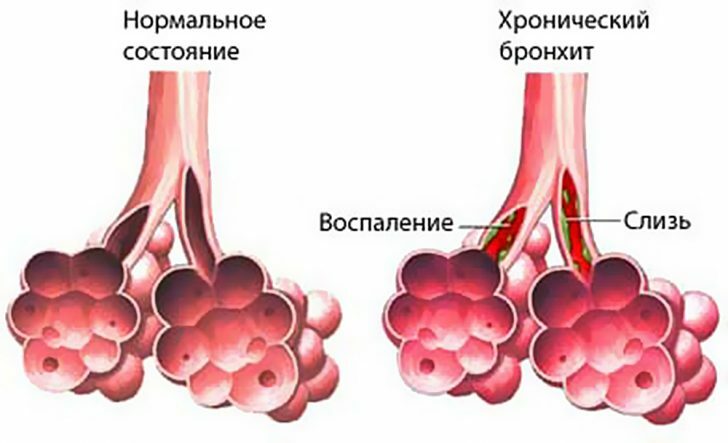 The doctor can also determine the types of bronchitis for development.There are only 2 of them - primary and secondary.In the first case, the inflammatory process develops independently, there are no pathological changes or injuries in the respiratory organs.But with secondary bronchitis, the underlying disease is always diagnosed, against which the inflammatory process( for example, acute respiratory viral infection, influenza) has developed.There is also obstructive bronchitis, but it is considered without connection with other types / types / forms of the inflammatory process in the bronchi, and therefore in this article its description will be a separate section.
The doctor can also determine the types of bronchitis for development.There are only 2 of them - primary and secondary.In the first case, the inflammatory process develops independently, there are no pathological changes or injuries in the respiratory organs.But with secondary bronchitis, the underlying disease is always diagnosed, against which the inflammatory process( for example, acute respiratory viral infection, influenza) has developed.There is also obstructive bronchitis, but it is considered without connection with other types / types / forms of the inflammatory process in the bronchi, and therefore in this article its description will be a separate section.
Signs of different types of bronchitis
The most important and indicative symptom of bronchitis is cough, but it will have a different "color" for different types and types of inflammation. Therefore, doctors classify the symptoms of bronchitis as follows:
- Infectious lung bronchitis:
- is a dry cough that periodically changes to wet;
- in the chest feels discomfort( patients can complain about the sensation of foreign body, pressure);
- increased weakness;
- body temperature rises to subfebrile values (37-37.5 degrees), but in exceptional cases it can be high;
- breathing is hard, audible rattling with deep breaths;
- a clinical blood test remains unchanged.
- Infectious bronchitis of moderate and severe course:
- a strong cough that leads to pain in the chest and upper abdomen is a consequence of severe overexertion;
- weakness and general malaise are pronounced;
- breathing is difficult;
- from the lungs goes away phlegm purulent or serous-purulent;
- wheeze when listening to the lungs wet, small bubbles.
- Allergic bronchitis.Appears only with direct contact with the stimulus, which the patient has an allergy.Symptoms:
- breathing is difficult, there is shortness of breath on exhalation;
- wheezing dry and diffuse;
- body temperature remains within normal limits.
- Toxico-chemical bronchitis:
- cough of excruciating character;
- severe dyspnea;
- in the chest appears stitching pain paroxysmal;
- headache and loss of appetite;
- after a while increases respiratory failure and hypoxemia;
- the mucous membranes acquire a bluish tinge;
- breathing is hard with wheezing.
- Acute bronchitis:
- cough is severe, early on the development of the disease is dry, then it becomes wet;
- body temperature rises to high levels;
- fast fatigue up to loss of working capacity;
- chills, general malaise, severe weakness;
- pain in the chest;
- , when listening to the lungs, dry rales are clearly audible.
- Chronic bronchitis:
- cough - during periods of remission, it can be paroxysmal and dry, with exacerbation - moist and exhausting;
- shortness of breath - during remission is almost absent, with exacerbation becomes pronounced and disturbs the night sleep;
- sputum is always present - during the remission it is a usual mucus( it can be yellow, brown and even black, which is typical for miners), which occurs after every attack of a cough.With exacerbation it is serous-purulent or purulent.
The doctor tells you in detail about symptoms of bronchitis:
Important: body temperature in chronic bronchitis may not rise at all even during an exacerbation, but this syndrome is individual and depends on the level of the patient's immune system.With prolonged course of chronic bronchitis and lack of competent treatment, hemoptysis may appear.If it is the appearance of veinlets / blood fibers in the sputum to be separated, then it is not necessary to worry, but if the presence of blood is too pronounced, then it is necessary to inform the treating physician about this fact - possibly a degeneration of inflammatory cells of the tissue into cancerous tissues.
Treatment of bronchitis in adults
 Bronchitis, regardless of its type and form, must necessarily be treated.Directly therapeutic measures can be performed at home - hospitalization is only for patients with severe bronchitis or with general intoxication symptoms.
Bronchitis, regardless of its type and form, must necessarily be treated.Directly therapeutic measures can be performed at home - hospitalization is only for patients with severe bronchitis or with general intoxication symptoms.
Medical therapy
Doctors must prescribe the following medicines:
- Mucolytic( expectorant).They are suitable for dry cough or for delayed sputum discharge.The most effective are Bromhexine and Lazolvan.
- Antitussive.They are necessary for an unproductive, painful cough.Most often it is recommended to take Libexin and Sinekod.
- Antibacterial( antibiotics).Tetracycline agents, Amoxicillin, Macrolides, Cephalosporins, Amoxiclav, Fluoroquinolones can be prescribed.
Note: antibiotics for bronchitis are prescribed only for severe chronic bronchitis, with frequent relapses.Acute bronchitis is treated well and without the use of antibacterial drugs.A specific type of these drugs is selected by determining the sensitivity of the causative agent of bronchitis to antibiotics.
If the inflammatory disease under consideration is accompanied by an increase in body temperature, doctors prescribe antipyretic agents - for example, Paracetamol or Aspirin.But the latter is used as a medicine to reduce temperature infrequently, as it has many contraindications - for example, Aspirin should not be taken to patients with diagnosed gastritis, peptic ulcer of the stomach and duodenum, cardiovascular diseases.
Physiotherapy
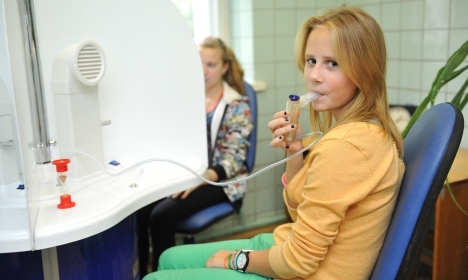 Physiotherapy plays a very important role in the treatment of bronchitis of various types - some doctors claim that without it, even the most competent treatment with medicines will not give a quick and expected effect. The most effective methods of physiotherapy for bronchitis are:
Physiotherapy plays a very important role in the treatment of bronchitis of various types - some doctors claim that without it, even the most competent treatment with medicines will not give a quick and expected effect. The most effective methods of physiotherapy for bronchitis are:
- Chest warming - is prescribed only as an additional medical treatment after the exacerbation of chronic bronchitis is removed or the first stage of acute treatment is passed.
- Massage - is done with poorly departing sputum, provides better opening of the bronchi and acceleration of outflow of serous-purulent or purulent sputum.
- Therapeutic respiratory gymnastics - helps to restore normal breathing and get rid of shortness of breath.
- Inhalation in bronchitis.They are difficult to call solely physioprocedures, because for the most part such procedures are a full-fledged therapy.As a means for inhalation are used:
- Dioxydin - an antiseptic agent, most often used for exacerbation of chronic bronchitis and in the viral form of the inflammatory process under consideration.This medication is diluted for inhalations with saline solution in the proportion of 1:10, 4 ml is sufficient for one inhalation.
- Atrovent - a bronchodilator drug, in pharmacy chains is sold in liquid form.To carry out the inhalation procedure, you need to dilute 2 ml of Atrovent in 2 ml of saline solution - the amount obtained is for one inhalation.
- Fluimucil is a drug that loosens / dilutes sputum.This drug is specifically designed for inhalation.Therefore, it is implemented in a form already ready for this procedure.
- Lazolvan is a bronchodilator that relieves cough and dyspnea symptoms.In pharmacies there is a special form for inhalation, so you do not need to specially prepare it.For one procedure, 3-5 ml of Lazolvana is sufficient.
- Ventolin - quickly removes an attack of suffocating cough.Sold in nebula, one is enough for inhalation, but beforehand, dilute the contents of the nebulus in a 1: 1 ratio with saline.
- Chlorfillipt - antiseptic, which for inhalation is diluted with saline in the proportion of 1:10.For a single inhalation procedure, 4 ml is sufficient.
For carrying out inhalations in bronchitis, it is advisable to use a nebulizer - a special drug that ensures a uniform spraying of the drug over the bronchi.
Treatment of bronchitis with folk remedies
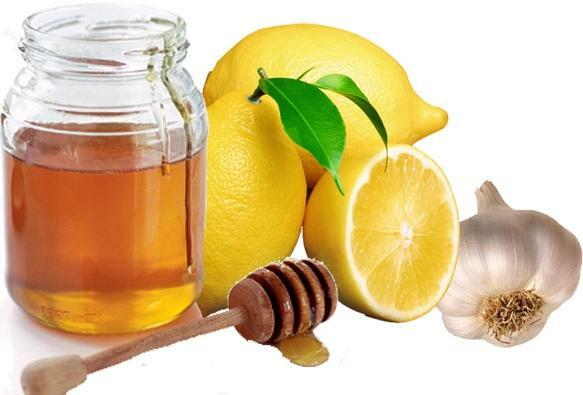 In folk medicine, there are dozens of recipes that effectively help in the treatment of bronchitis of various types / forms and types.Almost all of them are approved by official medicine and can be used without fear to exacerbate chronic bronchitis or to treat the acute incidence of the inflammatory process under consideration. These include:
In folk medicine, there are dozens of recipes that effectively help in the treatment of bronchitis of various types / forms and types.Almost all of them are approved by official medicine and can be used without fear to exacerbate chronic bronchitis or to treat the acute incidence of the inflammatory process under consideration. These include:
- Mix in equal quantities the seeds of sunflower, carrot and alcohol( pre-dilute it with water in a 1: 1 ratio).Stir and persist for 12 hours.Then the received means to accept on 1 teaspoon three times a day before meal, to wash down or seize it it is not necessary.After 3 days, all the symptoms of the disease in question disappear, and if the treatment of chronic bronchitis, the frequency of exacerbations will be significantly reduced.
- Mix in a saucepan with 500 g of interior lard, as much butter and sugar.Put on fire and bring to a complete dissolution on a slow fire.Allow the medium to cool slightly and add to it 500 g of honey and three tablespoons of cocoa( in powder).Ready to take 1 tablespoon in the morning on an empty stomach, washed down with warm milk( in any amount).This remedy perfectly helps with acute and chronic bronchitis, quickly removing all the symptoms of these diseases.
- Mix a kilogram of honey, half a liter of aloe juice, half a liter of liquid interior fat( pork), add grated bitter chocolate to the mass, turn everything into a homogeneous mass by heating in a water bath.Take the product you need twice a day on a tablespoon before eating( at least 30 minutes before a meal) until the symptoms of bronchitis disappear.
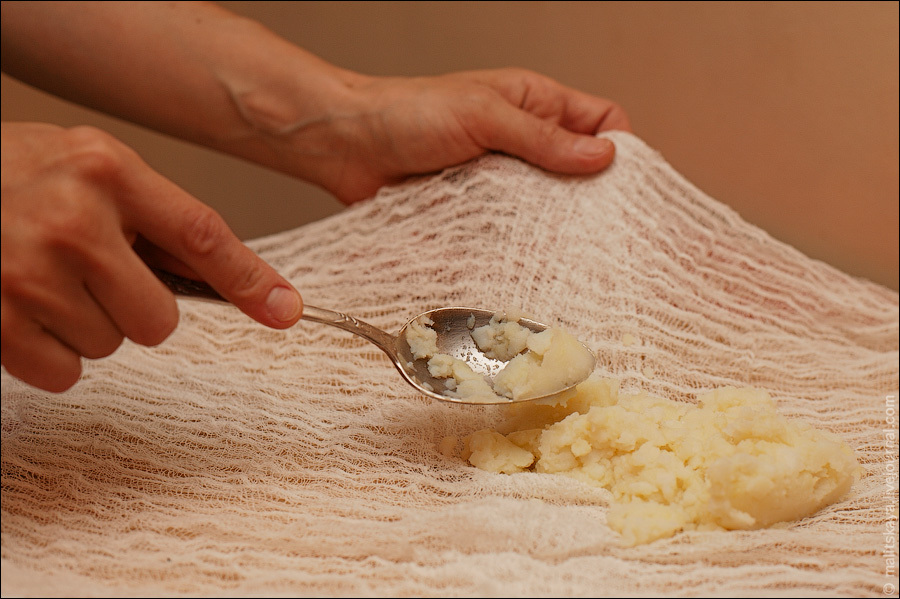 To relieve coughing and ensure a quiet sleep, the patient is recommended to apply compresses on the chest at night, which can be from boiled "in the uniforms" of potatoes( just explain it, wrap it in tissue and attach it to the top of the chest), from alcohol solutionAlcohol is diluted with water in a 1: 1 ratio or vodka is used) or a leaf of cabbage and honey.
To relieve coughing and ensure a quiet sleep, the patient is recommended to apply compresses on the chest at night, which can be from boiled "in the uniforms" of potatoes( just explain it, wrap it in tissue and attach it to the top of the chest), from alcohol solutionAlcohol is diluted with water in a 1: 1 ratio or vodka is used) or a leaf of cabbage and honey.
In folk medicine, there are also inhalations, however, they use only natural ingredients.For example, you can use leaves of sage and thyme - they will remove inflammation, chamomile flowers - have an antiseptic, mulberry and mint - a soothing effect helps relax the bronchi and relieve a violent cough.
Folk methods of treatment of bronchitis can be used only after consultation with the attending physician.In some cases, it is impossible to ensure full recovery without drug therapy.
Obstructive bronchitis
This type of bronchitis is never a primary disease and always occurs against the background of already developed inflammation in the airways.Obstruction is a narrowing of the lumen of the bronchi, which leads to a serious condition of the patient.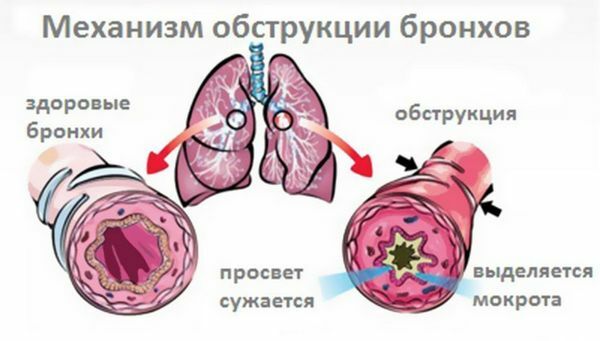
Species and symptoms of obstructive bronchitis
Acute obstructive bronchitis is characterized by:
- by catarrh of the upper respiratory tract;
- with a high intensity cough;
- presence of sputum in the bronchi, which practically does not separate;
- with shortness of breath, on exhalation, dyspnea is clearly audible;
- temperature exclusively subfebrile nature - it is this factor that distinguishes acute bronchitis from obstructive.
Chronic obstructive bronchitis:
- cough is intense, in the morning sputum is separated;
- dyspnea appears only with physical exertion, but during periods of exacerbation it worries the patient constantly;
- breathing is difficult and characterized by whistling;
- with exacerbation of chronic obstructive bronchitis sputum becomes purulent.
Causes of development
Obstructive bronchitis can develop against the background:
- of chronic bronchitis;
- diagnosed tumors of the trachea or bronchi;
- poisoning with poisonous substances;
- long-term smoking;
- hyperreactivity of the respiratory system;
- allergic reactions with frequent relapses.
Treatment of obstructive bronchitis
Treatment of this type of inflammatory process in the bronchi should be carried out under in-patient conditions - only in a medical institution doctors can monitor the patient's condition continuously. The scheme of therapy of obstructive bronchitis is as follows:
- bronchodilators - Atrovent, Berotek, Salbutamol, Teopek;
- mukoregulatory drugs - Ambroxol, Lazolvan;
- therapeutic respiratory gymnastics;
- inhalation procedures.
If the patient has purulent sputum, antibacterial drugs( antibiotics) will be prescribed, and with progressive respiratory failure, corticosteroids.
Bronchitis in pregnancy
 Pregnancy means refusing to take medications, so the development of bronchitis in the period of bearing a child is considered a problem.No, there is no danger for the woman or fetus of the inflammatory process in the bronchi is not.But here the treatment of even acute bronchitis should be carried out only under the supervision of doctors, and gynecologists as well.
Pregnancy means refusing to take medications, so the development of bronchitis in the period of bearing a child is considered a problem.No, there is no danger for the woman or fetus of the inflammatory process in the bronchi is not.But here the treatment of even acute bronchitis should be carried out only under the supervision of doctors, and gynecologists as well.
It is necessary to remember the following rules:
- can not accept even innocuous drugs at first glance;
- it is quite possible to conduct inhalations with alkaline solution( usual baking soda, diluted in warm boiled water in the proportion of 1 teaspoon per 200 ml of water);
- immediately go to bed, if the temperature rises, then you can and should drink tea with raspberries or kalina, but do not take antipyretics.
With the correct approach to the treatment of bronchitis during pregnancy, there is no complication of the disease.Bronchitis is not considered a dangerous disease, but it should not only be treated - the doctor should classify the disease, find out the cause of its development and give recommendations for the prevention.The treatment of obstructive and other types of bronchitis is devoted to the lecture of the doctor of restorative medicine - Prokofieva NV:
Tsygankova Yana Aleksandrovna, medical reviewer, therapist of the highest qualification category

